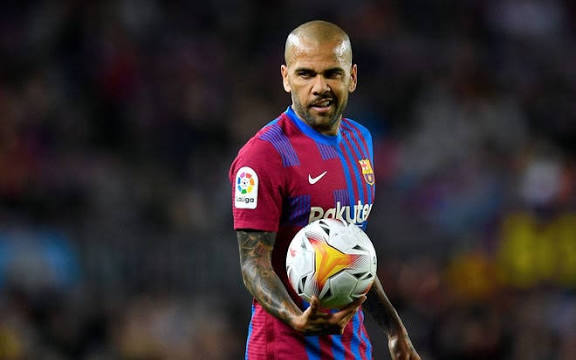Dani Alves and the dangers of Wrongful Accusations
Dani Alves and the Peril of Wrongful Accusations
How False Claims Nearly Destroyed football stars Like Alves, Ronaldo, and Greenwood
Dani Alves sexual assault case has spark up controversies after he was acquitted by Spain’s Catalonia High Court after it was discovered that he was accused wrongly.
Alves, was once the most decorated player with 43 trophies, spent over 13 months in prison after a February 2024 conviction for an alleged 2022 nightclub incident.
The court cited “insufficient evidence” and “inconsistencies” in the prosecution’s case, overturning the 4.5-year sentence and €150,000 compensation.
The 41 year old player walked free on €1 million bail, his passports returned, but the damage to his career had been done.
This serves as a cautionary story, with experiences of other players that have faced one wrong accusation or the other.
Alves’ story is a masterclass in how accusations can dismantle legacies overnight. Arrested in January 2023, he lost sponsorships, faced financial strain, and watched his €50 million net worth erode under legal fees.
Despite denying wrongdoing and admitting to consensual sex in trial, the initial guilty verdict—based on Spain’s 2022 consent laws—relied heavily on the accuser’s testimony, later undermined by CCTV footage showing voluntary entry to the bathroom.
The appeals court emphasized the presumption of innocence, a principle often eroded by media trials. Alves’ 126 Brazil caps and roles in the 2002 World Cup and Barcelona’s 2009 sextuple faded as headlines focused on the case, leaving him isolated.
His lawyer, Inés Guardiola, declared, “Dani Alves is innocent, and that has been proven.” Yet, the accuser walks free, her claims unpunished despite the ruling’s implications for perjury, highlighting a system where false allegations can evade consequences while the accused suffers.
Alves’ plight mirrors other footballers who endured wrongful accusations, their careers hanging by a thread.
Former Real Madrid and Manchester United star Cristiano Ronaldo faced a 2018 rape claim by Kathryn Mayorga, settled out of court for $375,000 in 2010 but revived amid #MeToo.
The Nevada court dismissed it in 2019 for lack of evidence, with Mayorga fined $500,000 for legal abuse, yet Ronaldo lost endorsements and faced years of scrutiny, his brand value dipping $40 million.
A youngster Mason Greenwood in 2022 was arrest for attempted rape and assault by Harriet Robson ended with charges dropped in 2023 after her withdrawal, but Manchester United loaned him out, and he joined Getafe amid fan backlash. Greenwood’s mental health suffered, his £75,000 weekly wage paused, illustrating how even exoneration leaves scars.
Neymar nearly fell into the trap in 2019 when Najila Trindade accused him of rape in a Paris hotel. The Brazilian police charged her with defamation after video evidence showed her assaulting him, leading to her arrest. Neymar’s reputation took a hit, with sponsors pausing deals and media frenzy, but he avoided the full fallout Alves endured. These cases reveal a pattern: high-profile players face swift condemnation, with careers paused or ended before trials conclude.
The Innocence Project estimates 1-5% of sexual assault convictions are wrongful, a figure likely higher in celebrity cases due to bias. For footballers, the loss is multifaceted—sponsorships vanish, clubs distance, and public trust erodes, often permanently.
Alves’ acquittal, while a relief, doesn’t erase the lost time or tarnished image. Free to travel and potentially return to the pitch.
His story, alongside Ronaldo’s, Greenwood’s, and Neymar’s brush with disaster, calls for reform: faster appeals, media guidelines, and support for the wrongly accused.
Football must protect its stars from the wreckage of false claims, ensuring justice serves all, not just the loudest voices. As Alves steps forward, his tale warns that in the spotlight, innocence is hard to win, but careers can be lost.
Follow us @Sportscliffs on Twitter and Instagram and also like our facebook page


